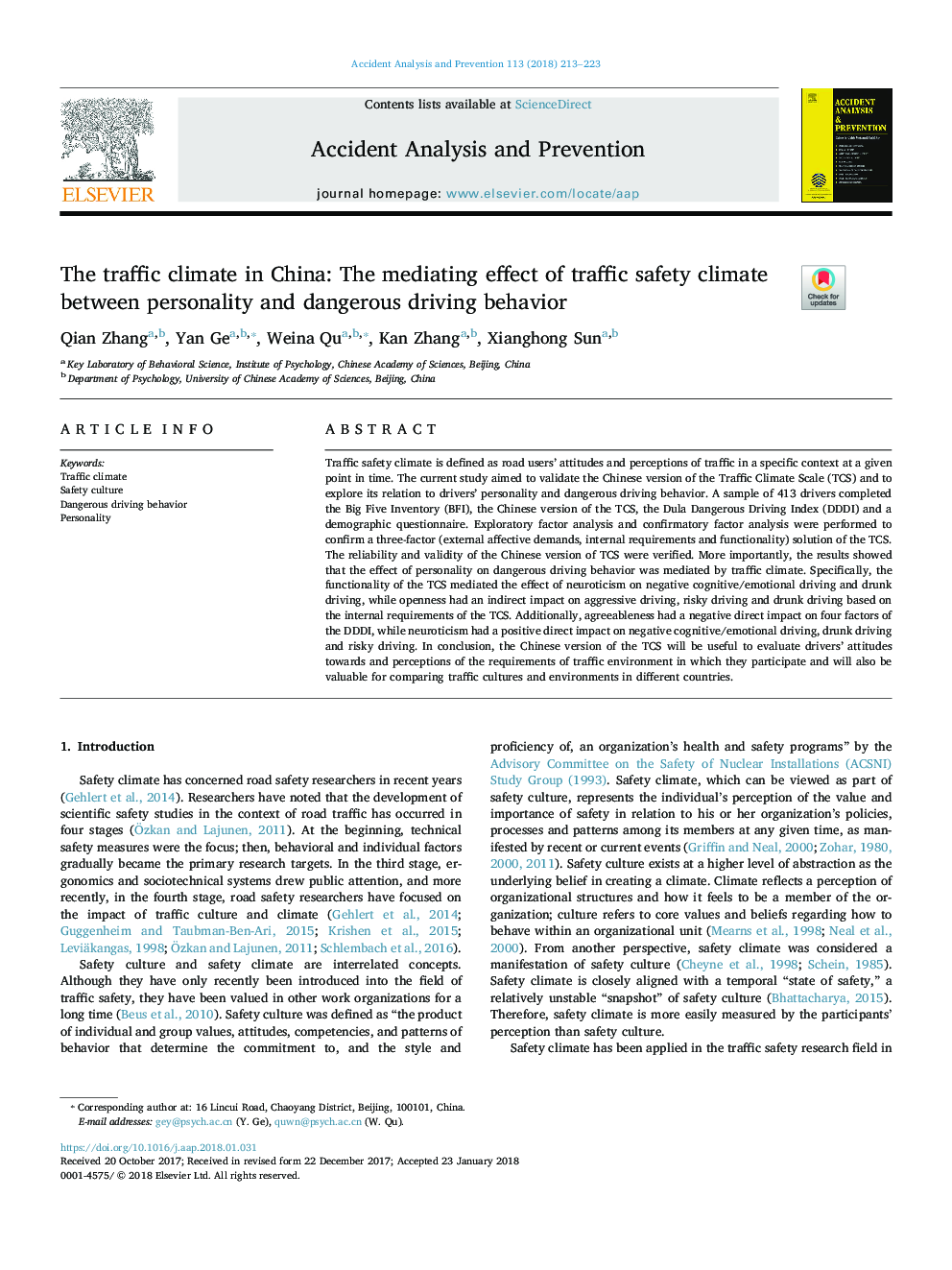| Article ID | Journal | Published Year | Pages | File Type |
|---|---|---|---|---|
| 6965212 | Accident Analysis & Prevention | 2018 | 11 Pages |
Abstract
Traffic safety climate is defined as road users' attitudes and perceptions of traffic in a specific context at a given point in time. The current study aimed to validate the Chinese version of the Traffic Climate Scale (TCS) and to explore its relation to drivers' personality and dangerous driving behavior. A sample of 413 drivers completed the Big Five Inventory (BFI), the Chinese version of the TCS, the Dula Dangerous Driving Index (DDDI) and a demographic questionnaire. Exploratory factor analysis and confirmatory factor analysis were performed to confirm a three-factor (external affective demands, internal requirements and functionality) solution of the TCS. The reliability and validity of the Chinese version of TCS were verified. More importantly, the results showed that the effect of personality on dangerous driving behavior was mediated by traffic climate. Specifically, the functionality of the TCS mediated the effect of neuroticism on negative cognitive/emotional driving and drunk driving, while openness had an indirect impact on aggressive driving, risky driving and drunk driving based on the internal requirements of the TCS. Additionally, agreeableness had a negative direct impact on four factors of the DDDI, while neuroticism had a positive direct impact on negative cognitive/emotional driving, drunk driving and risky driving. In conclusion, the Chinese version of the TCS will be useful to evaluate drivers' attitudes towards and perceptions of the requirements of traffic environment in which they participate and will also be valuable for comparing traffic cultures and environments in different countries.
Keywords
Related Topics
Physical Sciences and Engineering
Chemical Engineering
Chemical Health and Safety
Authors
Qian Zhang, Yan Ge, Weina Qu, Kan Zhang, Xianghong Sun,
